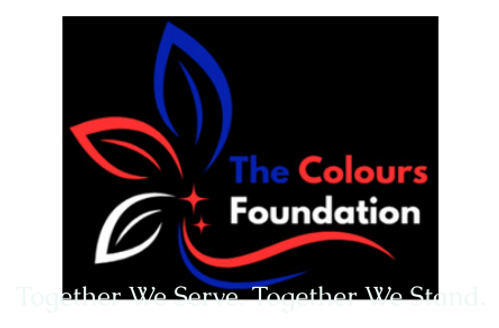Is Doing What You Love Selfish?
- tbrooks209
- Sep 3, 2025
- 4 min read

The question under the question
“Is doing what I love selfish?” If you’ve worn the uniform and also carry the expectations that often fall on women of color—eldest daughter, fixer, caregiver, the one who “has it together”—this question hits different. The military may have taught you to push through, to put the mission and your people first. Family, culture, and faith may have echoed that message: be strong, handle it, don’t make waves.
So when a quiet voice inside says, “I miss painting,” or “I want to go back to school,” or “I need a weekend that’s just for me,” it can feel like betrayal. Here’s the truth: doing what you love isn’t selfish; it’s protective. It’s a life-affirming practice that strengthens the very factors that keep us here.
Service didn’t end when you took off the uniform—neither should your humanity
You gave years of your life to service. That service shaped you: discipline, loyalty, excellence under pressure. But it also may have layered on stress injuries—moral injury, grief, trauma, chronic hypervigilance. For many women of color, there’s another ruck to carry: stereotypes about being “strong,” pressure to support extended family, navigating racism and sexism (and often, being dismissed when you ask for care).
Loving something—music, gardening, powerlifting, mentoring younger vets—can feel like a luxury. It’s not. Love is fuel. It restores the nervous system, reconnects you to purpose, and counters isolation—one of the riskiest places to be when you’re struggling.
From “selfish” to “strategic”: a suicide prevention lens
Think of mental health like readiness. Doing what you love strengthens protective factors that reduce suicide risk:
Connection: Hobbies and communities (choir, bike club, ceramics class, faith group, book club) create belonging.
Purpose: Goals that matter to you—not just to the mission—build reasons to stay.
Regulation: Creative and physical practices help your body downshift from fight/flight.
Agency: Choosing your time and projects rebuilds a sense of control, especially after experiences that took it away.
If you’ve ever thought, “It’d be easier if I weren’t here,” please hear this: you’re not alone, and there’s help. Pair your “love plan” with a safety plan (more below). Both are acts of courage.
The unique headwinds women of color veterans face—and how to cut through them
The “Strong One” script: Strength without support becomes isolation. Rewrite it: I’m strong enough to ask for help and to make time for what keeps me well.
Family duty & guilt: Love can include boundaries. Offering your best requires time to refuel.
Stigma: Seeking therapy, meds, peer support, or spiritual care is not a moral failure. It’s maintenance—like cleaning your weapon.
Financial pressure: Joy doesn’t have to be expensive. Ten minutes of sketching, a library card, free vet-centric fitness classes, community meetups—start where you are.
A “mission brief” for doing what you love (and staying safe)
Step 1: Name your why. Write one sentence: “Doing ___ helps me feel ___ and reminds me ___.” Tape it where you’ll see it.
Step 2: Make a micro-plan. Pick a 15-minute action, three times a week. Not a someday plan—this week. Examples:
Watercolor during your lunch break.
Walk a mile after dinner.
Call a battle buddy or sister-vet on Thursdays.
Watch a tutorial and practice for 15 minutes.
Step 3: Build your safety plan. On paper (or your phone), list:
Your warning signs (e.g., not sleeping, skipping meals, pulling away).
Coping steps you can do alone (breathing, prayer, music, cold water on wrists, journaling).
People/places that help (names + numbers of friends, Vet Center, faith leader, peer group).
Professionals (therapist, psychiatrist, primary care). Save their numbers.
Crisis options (988 then 1, text 838255). Put them in your favorites.
Step 4: Recruit allies. Tell two people: “I’m protecting my mental health by making time for __. If I go quiet or sound off, here’s how to check on me.” Share your safety plan.
Step 5: Set a boundary you can keep. Try: “I’m not available Sundays after 3; that’s my studio time.” Repeat without over-explaining.
Conversation scripts (because practicing helps)
With family: “I love y’all, and I’m better for everyone when I get my training time. I’ll help after 5, but mornings are mine.”
With your inner critic: “Rest and joy are readiness. Ten minutes today is better than perfect someday.”
With a friend: “Hold me accountable to two classes this month. If I bail, text me ‘boots on.’”
What if the love you used to have feels far away?
That happens, especially with depression, PTSD, moral injury, or chronic stress. Start with interest, not passion. Curiosity is a pilot light. Try tiny samples: a single poem, three chords, repotting a plant, a 10-minute body scan, or one page of a book that you've put off for too long.
Momentum grows from motion, not motivation.
And if nothing sparks? That’s also data—time to widen your care: talk to a clinician, ask about sleep, nutrition, movement, and meds. Relief opens space for joy to return.
Permission slip (print this if it helps)
I am not selfish for doing what I love. I am safer, steadier, and more myself. My joy is part of my duty to the people I love—and to me.
Pinned resources
Veterans Crisis Line (U.S.): Dial 988, then press 1. Text 838255. Chat online at the Veterans Crisis Line site. Available 24/7, confidential.
Vet Centers: Community-based counseling for combat veterans and those who experienced MST; family counseling is available.
Peer support: Look for women-of-color veteran circles, campus veterans groups, or local arts/fitness communities.
Faith & culture-centered care: If it’s part of your life, integrate it—ask your leader or community for confidential support options.
Final word
Doing what you love isn’t turning your back on service. It’s how you stay—present, grounded, alive. Your joy is not an add-on; it’s armor and medicine. If you need help taking the first step, borrow my words: I’m choosing one small thing today because my life is worth it.
If you’re in immediate danger or thinking about harming yourself, please dial 911 (U.S.) or go to the nearest emergency room. You are needed here.




Comments